U.S. Accuses Kim Jong Il Of Ordering Attack On South Korean Warship
The tensions on the Korean peninsula over the attack on the South Korean Cheonan, continue to mount:
A new American intelligence analysis of a deadly torpedo attack on a South Korean warship concludes that Kim Jong-il, the ailing leader of North Korea, must have authorized the torpedo assault, according to senior American officials who cautioned that the assessment was based on their sense of the political dynamics there rather than hard evidence.
The officials said they were increasingly convinced that Mr. Kim ordered the sinking of the ship, the Cheonan, to help secure the succession of his youngest son.
“We can’t say it is established fact,” said one senior American official who was involved in the highly classified assessment, based on information collected by many of the country’s 16 intelligence agencies. “But there is very little doubt, based on what we know about the current state of the North Korean leadership and the military.”
Nonetheless, both the conclusion and the timing of the assessment could be useful to the United States as it seeks to rally support against North Korea.
On Monday, South Korea’s president, Lee Myung-bak, who has moved cautiously since the assault, is expected to call for the United Nations Security Council to condemn the attack and is likely to terminate the few remaining trade ties between North and South that provide the North with hard currency.
But those steps have little chance of proving meaningful unless China, which hosted Mr. Kim two weeks ago, agrees to join the condemnation and refuses to make up whatever revenue North Korea loses from any trade embargoes. China, North Korea’s last true ally, has traditionally been reluctant to pressure the North too much, even when the North Koreans conducted nuclear tests, for fear of toppling the government and sending a flood of refugees across its border.
Secretary of State Hillary Rodham Clinton will be in Beijing when the South Korean action is announced, leading a delegation of 200 American officials, including roughly half of the Obama administration’s cabinet, in an annual “strategic dialogue” with Chinese leaders on a variety of economic and political issues.
As always with North Korea, this really all boils down to what China is willing to do and how much misbehavior they’re willing to tolerate from Pyongyang. Which is why I doubt that much is going to come of this latest round of outrage.
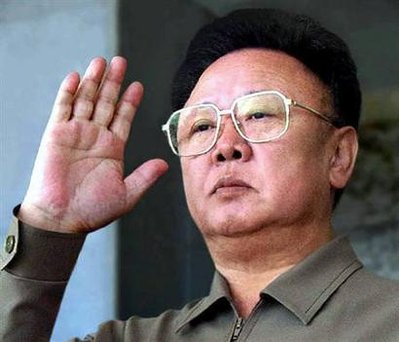

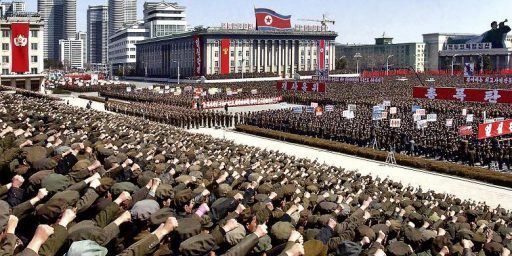
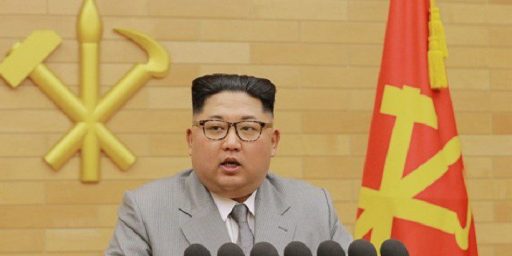
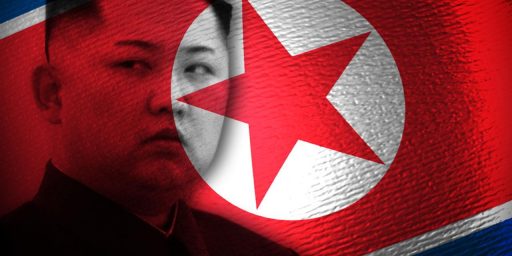
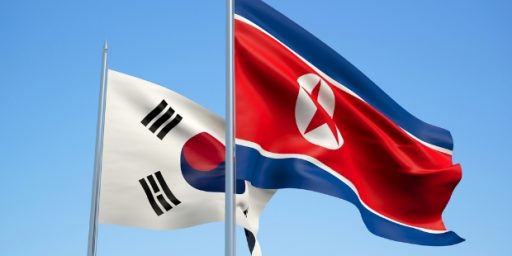

This reminds me a bit of the tea leaf reading the old Kremlinologists used to do. Maybe it is correct, maybe it isn’t, but I wouldn’t put much stock in their divinations for policy.
It was Kim? You sure? I’m pretty sure it was George Bush.
No matter if it was G. W. Bush or Kim Jong-ill. Our current chief executive will do nothing to respond which would cause the world to gain respect for the U.S. If Obama is open to and willing to discuss internal U.S. policy with foreign leader and then allow that leader to comment in front of a joint session of congress. Criticizing laws which are far less harsh than that of his own country, why would anyone thing he would respond to an act of war by an adversary who insists on its right to violate agreement after agreement
Zels,
How is the North Koreans attacking a South Korean ship an act of war against the U.S.?